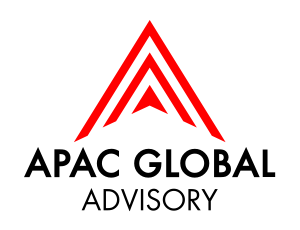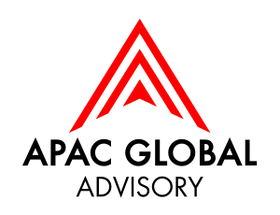The Future Workplace: How CEOs Can Drive the Change
The workplace has been evolving continuously, with the COVID-19 pandemic accelerating shifts towards remote and hybrid work models. While some companies, like PwC, are enforcing a return to the office using location data to track compliance, new regulations in Singapore will soon require employers to fairly consider flexible work requests. Beyond this, business travel has also been reshaped, with virtual meetings replacing many short corporate trips unless face-to-face interactions are absolutely necessary. In parallel, generative AI is transforming Finance, Customer Sales, Marketing, Operations, and HR, and the World Economic Forum’s 2023 "Future of Jobs" report predicts that 23% of jobs globally will be affected by AI by 2027. While 69 million new roles will emerge, 83 million jobs could disappear, marking a net loss of 14 million positions. In this evolving landscape, CEOs must not leave these changes to unfold passively. Instead, they need to collaborate closely with their boards to actively plan for and ride this wave of change, turning disruption into a strategic advantage.
While the future may seem daunting for individuals and organisations, those who adapt and leverage AI will unlock new opportunities. Just as the advent of spreadsheets revolutionised the accounting profession—reducing manual tasks while enabling more advanced financial analysis—AI will augment existing jobs by automating routine tasks, freeing up workers for higher-value responsibilities. In the same way accountants thrived after adopting digital tools, workers in various sectors will continue to evolve with AI-driven technologies.
At the same time, in the future workplace, there has been an increasing need to address sustainability and governance within the context of workplace.
- Upfront Consideration of Strategic Direction Changes Needed for Company Sustainability
A courageous and systematic review is needed to boldly embrace changes that fine-tune or adjust a company’s strategic direction for sustainability in the coming years and decade. These changes will significantly impact the future of the workplace, including the need for geographic offices and reduced workspaces. The shifts in AI and ESG requirements, though less visible on the surface, will drive the largest changes. It is essential to trace the touchpoints of key functions and innovation plans, ensuring they are incorporated into organizational areas such as IT, Finance, Customer Sales, Operations, and HR, as highlighted by the WEF report.
The impact of these changes in the organization—through task, role, processes, and partnerships—will have financial implications. At the same time, and separately, sustainability considerations and their impact on strategy and the company’s pillars must be reflected in the company’s accounts, governance, and risk and compliance reports. Increasingly, standards will be set, such as the UK’s Corporate Sustainability Reporting Directive (CSRD), which entered into force in January 2023 as a substitute for the Non-Financial Reporting Directive (NFRD). Singapore will also require all listed firms to make climate-related disclosures from the financial year 2025, followed by large non-listed firms two years after that. We can expect more governance standards and measures to come.
Firstly, the concept of a job or role can be broken down into objectives and tasks. Objectives, such as an accountant's goal to maintain accurate financial records, rarely change, whereas tasks are the specific activities performed to achieve these objectives, which may vary depending on the situation or context. The extent to which a job will be impacted by AI depends largely on how many of its tasks will be automated, augmented, or created.
This leads to the second concept: the types of tasks at which AI excels. AI generally performs well in tasks that require analysing large quantities of data, detecting patterns and trends, optimising routes or allocations, answering queries, recognising and detecting objects in images, monitoring and tracking, processing data or documents repetitively, and making personalised recommendations. Recent advancements in Generative AI have also significantly expanded its ability to excel in tasks involving content generation, complex workflows, research, and coding, to name a few. By analysing the current tasks within each role, organisations and individuals can determine the degree of impact AI will have on these roles.
- Dive into the Need for Change of Values to Survive the New World
It is advisable to audit your organization's vision, mission, and values with a forward-looking perspective and alignment to it. One often overlooked aspect in the yearly strategic development is the specific need to review the organization's values and culture. From refining the mission (the path to achieving the vision) and values to shaping the culture, for instance, it is important to consider how well the organization can navigate digital transformation and AI. For example, evaluating Agility versus Progressiveness. We have found some mismatch of KPIs with the intended new desired culture. Such small misalignment can impact the organization's speed to change.
Organisations can foster a culture that embraces change and innovation. Employees should feel empowered to experiment with new technologies and approaches, helping the organisation remain competitive and agile in a rapidly evolving market. This can be achieved through various strategies such as establishing an innovation centre of excellence, incorporating innovation incentives into company policies, collaborating with research institutions for co-innovation, organising innovation programmes or hackathons, and celebrating innovation while tolerating experimental failures.
- Implementing the Transition from Your Current Legacy Team to a New Dynamic Organization
A common lament from leadership teams is that the current workforce lacks the required skill sets amid evolving changes and demands. Not knowing what to do, many are resorting to restructuring poorly executed approaches that impact their corporate brands, both internally and externally. Recently, we have observed that poorly managed communication during layoffs can significantly impact morale and erode trust in the company’s corporate and product brands due to these poorly orchestrated changes and communication.
Instead, organisations should not wait for such situations to arise and should ideally ensure periodic strategic skill gap analyses on their workforce to identify the gaps between the current workforce and the future ideal workforce. Organisations can start with functions critical to business growth and operations and then move on to other functions. Based on the findings, they can formulate a targeted strategy to develop their current workforce or acquire talent from the market.
It is critical that leadership encourages continuous and lifelong learning and skill development. Performance and training plans should encourage employees to regularly update their skills, especially in areas where AI is making significant inroads. This includes not only technical skills but also soft skills like advanced communication, change management, problem-solving, critical thinking, and adaptability. This should not be limited to education but should include integrated role rotation planning and incentives.
For roles or functions that will be greatly impacted by AI, organisations should plan and invest in training programmes to upskill and reskill their workforce alongside the adoption of AI solutions. This will help employees transition to new roles that AI cannot easily replicate or take on additional tasks, such as effectively using AI tools. For example, customer service representatives can be trained to handle more complex queries and provide personalised support requiring human empathy, while AI automates simple and frequent queries or follow-ups. In the case of IKEA, call centre employees were retrained as design consultants to provide a better customer experience, while AI largely automated the day-to-day call centre operations.
This article is written in collaboration between APAC Global Advisory and Elgo Technologies. APAC Global Advisory's purpose is "Building Legacy through Change." An End-to-End Brand Business Change Consultancy, with global expertise in transforming family businesses to take them to the next stage of growth, leveraging Brand, People, and Technology—through Change Architect, Change Marketing, and Change Services. Elgo Technologies are AI experts that provide practical AI solutions by building powerful tools using your data and state-of-the-art technologies, such as generative AI, to take your business to higher grounds
About the Authors: Lee Gang (Founder & CEO of ELGO Technologies, AI & Data Co-creation Satellite of APAC Global Advisory), Wong Mei Wai (Founder, CEO & Chief Change Advisor of APAC Global Advisory), Chang Hui Tze (Marketing & Business Development Manager of APAC Global Advisory)

